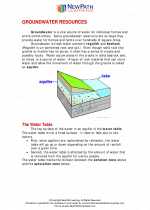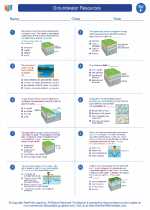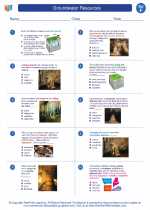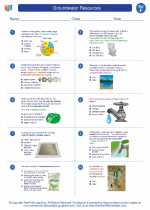Groundwater Resources -> geological processes
Geological Processes
Geological processes are the natural processes that shape the Earth's surface and structure. These processes, which include weathering, erosion, deposition, and tectonic activity, are responsible for the formation of landforms such as mountains, valleys, and plateaus.
Weathering
Weathering is the process by which rocks and minerals are broken down into smaller pieces. This can occur through physical processes such as freezing and thawing, as well as chemical processes such as the action of water and acids.
Erosion
Erosion is the movement of weathered material from one place to another by the action of wind, water, or ice. This process can create features such as river valleys, canyons, and coastal cliffs.
Deposition
Deposition is the laying down of eroded material in a new location. This can lead to the formation of sedimentary rocks and landforms such as beaches, sand dunes, and river deltas.
Tectonic Activity
Tectonic activity is the movement and deformation of the Earth's crust. This includes processes such as plate tectonics, earthquakes, and volcanic activity, which can lead to the formation of mountains, earthquakes, and volcanic eruptions.
Study Guide
- What are the four main geological processes?
- Explain the difference between weathering and erosion.
- Give examples of landforms formed by deposition.
- How does tectonic activity contribute to the formation of landforms?
- Describe the impact of geological processes on the Earth's surface.
Understanding geological processes is important for understanding the Earth's history and the formation of its landscapes. Studying these processes can also help us better understand natural hazards such as earthquakes and landslides, and their potential impact on human societies.
.◂Science Worksheets and Study Guides Sixth Grade. Groundwater Resources

 Worksheet/Answer key
Worksheet/Answer key
 Worksheet/Answer key
Worksheet/Answer key
 Worksheet/Answer key
Worksheet/Answer key
 Vocabulary/Answer key
Vocabulary/Answer key
 Vocabulary/Answer key
Vocabulary/Answer key
